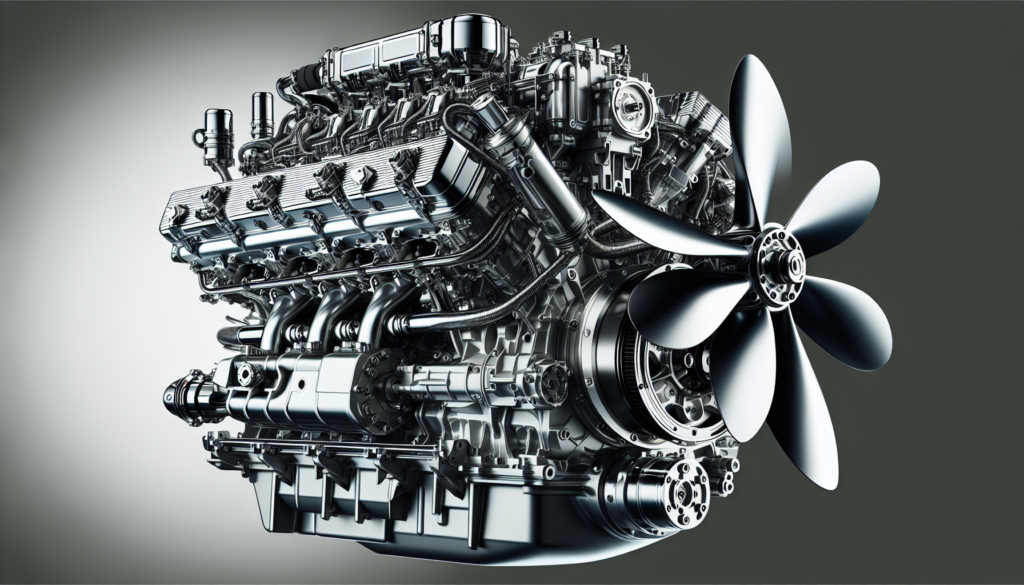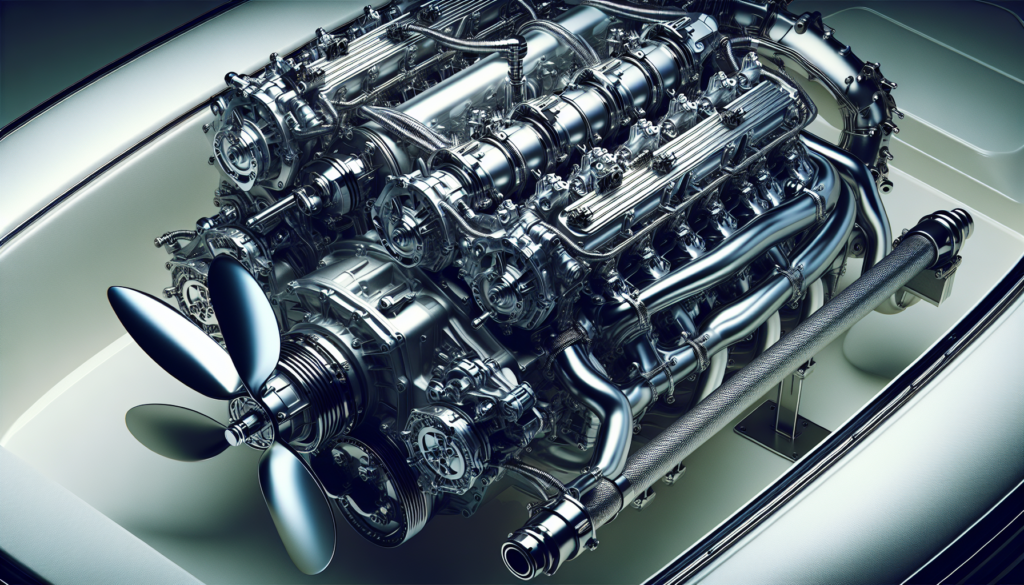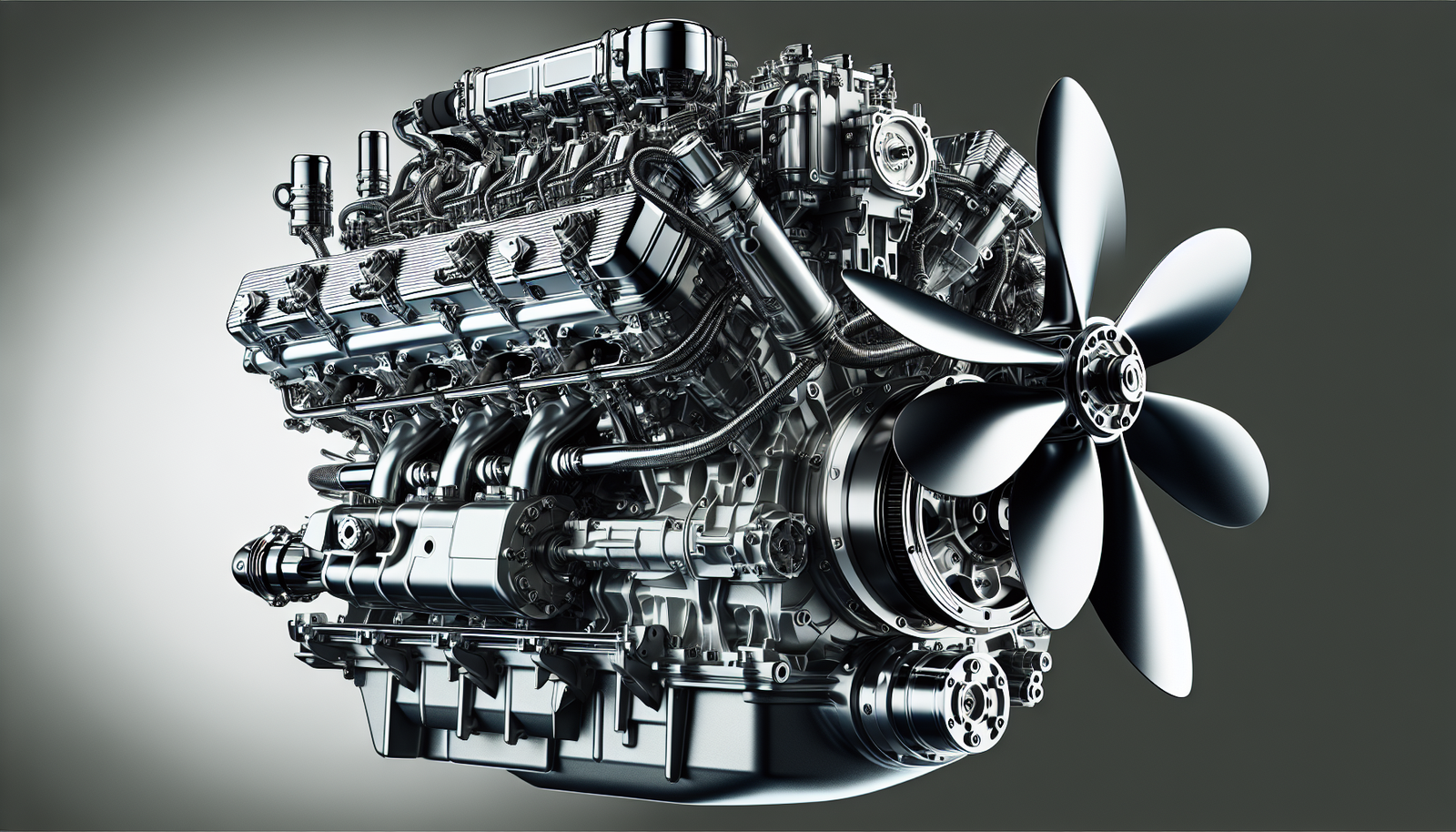Ready to feel the wind whip through your hair as you speed across the water in your high-performance boat? Before your dream turns into reality, it’s important to understand exactly what you’re investing in. The upcoming article, “What Should You Know Before Buying a high-performance boat engine?”, aims to arm you with the critical knowledge you need to make an informed decision. The piece will cover everything from the types of engines available to factors like power, fuel efficiency, and maintenance. So, gear up for a comprehensive guide on becoming a proud, and savvy, high-performance boat owner.

Understanding the Basics
When you’re in the market for a high-performance boat engine, it’s crucial that you first understand what that exactly means.
What is a High-Performance Boat Engine?
A high-performance boat engine, as the name suggests, is an engine that is designed to deliver speed, power, and overall outstanding performance compared to standard motors. These engines are typically used in racing boats or yachts requiring a high speed and strong acceleration. They provide not just an excellent speed but also the thrill and fun of boating at its very best.
Components of a Boat Engine
Boat engines are made up of several components which work together to generate the power needed to propel your vessel. These essential parts include the cylinder and piston, crankshaft, connecting rods, intake and exhaust valves, and finally the combustion chamber where the fuel burning process happens. Also, don’t forget the cooling and fuel systems, spark plugs, and the boat engine’s lubricating system.
How Boat Engines work
The process of how a boat engine works is quite fascinating. Fuel enters the combustion chamber through the intake valve, and at the same time, the piston goes down causing the cylinder to fill with air. As the piston moves back up, it compresses the fuel and air. The spark plug ignites this pressurized mixture, creating an explosion which pushes the piston down and turns the crankshaft. This turning motion is then transferred to the propeller which propels your boat forward.
Type of Boat Engines
Choosing the right engine for your boat may seem a tough task, but understanding the different types can simplify the process.
Outboard Engines
Outboard engines are the most common type for most recreational boats. These are standalone engines that are mounted at the rear of the boat. They provide steering control and come in a range of horsepower ratings.
Inboard Engines
Inboard engines, on the other hand, are housed within the boat’s hull. They offer improved balance and are commonly found in larger, more luxurious vessels.
Sterndrive Engines
Sterndrive engines, also known as inboard/outboard engines, offer the best of both worlds. They have the power and balance of an inboard engine, coupled with the steering and propelling capabilities of an outboard engine.
Jet Engines
Jet engines are a less common but equally valid option. They work by taking in water and expelling it at a high velocity, which propels the boat forward. They’re known for their ability to operate in shallow waters and provide an exhilarating ride.
Things to Consider When Choosing a Boat Engine
Now that you have an understanding of what a high-performance boat engine is and the different types available, it’s time to dive into some factors you should consider before making a purchase.
Size of the Boat
The size of your boat plays a significant role in determining the type of engine you should choose. Bigger boats require more horsepower to move efficiently, so it’s crucial to choose an engine that can fulfill those needs.
Usage of the Boat
Consider how you intend to use the boat. If it’s for leisurely cruises, speed may not be a high priority. But if you plan to use the boat for water sports or racing, you’ll need a high-performance engine.
Horsepower Requirement
Power is fundamental in getting the best out of your boat. Evaluate the horsepower of different engines and match them with the needs of your boat.
Fuel type and Consumption
The type of fuel the engine uses and how much it consumes are important aspects to consider. Ideally, an engine should be fuel-efficient to minimize costs and reduce the impact on the environment.

Durability and Maintenance of Boat Engines
Caring for your engine and understanding its lifespan can help make the most out of your investment.
Proper Care and Maintenance
Regular maintenance is key to keeping your boat engine in top shape. This includes cleaning, oil changes, and part replacements when necessary.
Expected Lifespan of High-performance Boat Engines
A well-maintained high-performance engine can last anything from 1,500 to 3,000 hours of operation, depending on how and where the boat is used.
Common Issues and Repairs
Like any mechanical system, boat engines could experience problems. Some common issues include overheating, oil leaks, or a failed ignition. In such cases, it’s best to seek help from professionals to avoid further damages.
Cost Factors
Understanding the costs of owning a high-performance boat engine is key to ensuring you make a wise financial decision.
Initial cost of Engine
High-performance engines come at a high initial cost, especially if you opt for reputable brands. The price usually depends on the engine’s size, type, and specifications.
Cost of Installation
Installation costs can also add up, especially for inboard and sterndrive engines. These types require professional installation for best results.
Maintenance Cost
High-performance engines require regular maintenance which also comes at a cost. Oil changes, replacements of worn-out parts, and frequent check-ups should be considered.
Additional Components cost
You might also need additional parts to enhance the performance of your engine, like upgraded propellers or high-quality fuel systems, which will cost extra.
Performance Factors
One of the main reasons people opt for high-performance engines is the enhanced performance they offer.
Engine Power
The power of a high-performance engine sets it apart from regular ones. These engines come with high horsepower ratings, enabling them to propel the boat at impressive speeds.
Speed
Speed is an exhilarating factor in boating. With a high-performance engine, you’re sure to enjoy high speeds, whether for racing or pure thrill.
Acceleration
Fast acceleration is another perk of high-performance engines. These engines can quickly reach top speed, which is vital in industries like water sports or racing.
Fuel Efficiency
Despite being high performance, these engines are designed to be fuel-efficient, optimizing performance without unnecessarily burning through fuel.
Environmental Considerations
As environmental conservation becomes a pressing issue, it’s important to consider how your engine affects the environment.
Emission Standards
Check that your engine meets the emission standards set by authorities in your region. This ensures that the engine is not excessively polluting the environment.
Fuel Efficiency and Carbon Footprint
Fuel efficiency not only minimizes costs but also reduces your boat’s carbon footprint by burning less fuel.
Noise Pollution
Noise pollution is another environmental factor to consider. High-performance engines can be noisy, but many modern designs focus on reducing this.
Understanding Boat Engine Brands
With many boat engine brands in the market, consider the following factors before choosing:
Popular High-performance Boat engine Brands
Some of the top brands for high-performance boat engines include Mercury, Yamaha, and Honda. Do your research to find the one that best fits your needs and preferences.
Brand Reputation and Quality
Choose brands that are reputable and known for their quality. Check user reviews and expert ratings to make an informed decision.
Warranty and Customer service of Brands
Also, consider brands that offer good warranty coverage and excellent customer service. This could save you a lot of headache should any issues arise with your engine.
Where to buy High-Performance Boat Engines
You can buy boat engines from various sources.
Buying from a Dealer
Purchasing from a dealer means you get professional advice and after-sale services. They can also handle installation and initial testing for you.
Online Purchase
Buying online offers convenience and a wider range of options to choose from. However, ensure you buy from trusted and reputable online platforms to avoid scams.
Used Engine Markets
If you’re on a budget, used engines can offer good value for money. Be sure to get them checked by a professional before buying to avoid costly repairs down the line.
Legal and Safety Concerns
Lastly, it’s important to be aware of the legal implications and safety concerns of owning a high-performance boat engine.
Legal Regulations for High-performance Boats
There may be legal regulations governing the use of high-performance boats in your area. Be sure you are aware of these and comply to avoid penalties.
Safety Measures for High-speed Boating
Safety is paramount when boating at high speeds. Ensure you have appropriate safety gear on board, like life jackets and fire extinguishers.
Insurance Requirements
Insurance can cover accidents and damages that may occur. Check with your insurance provider for the necessary coverage on high-performance boats and engines.
In conclusion, there’s a whole lot to consider when buying a high-performance boat engine. Knowledge is power, and hopefully, you’ve gained enough from this guide to make the best choice for your boating experience and lifestyle. Happy Boating!


